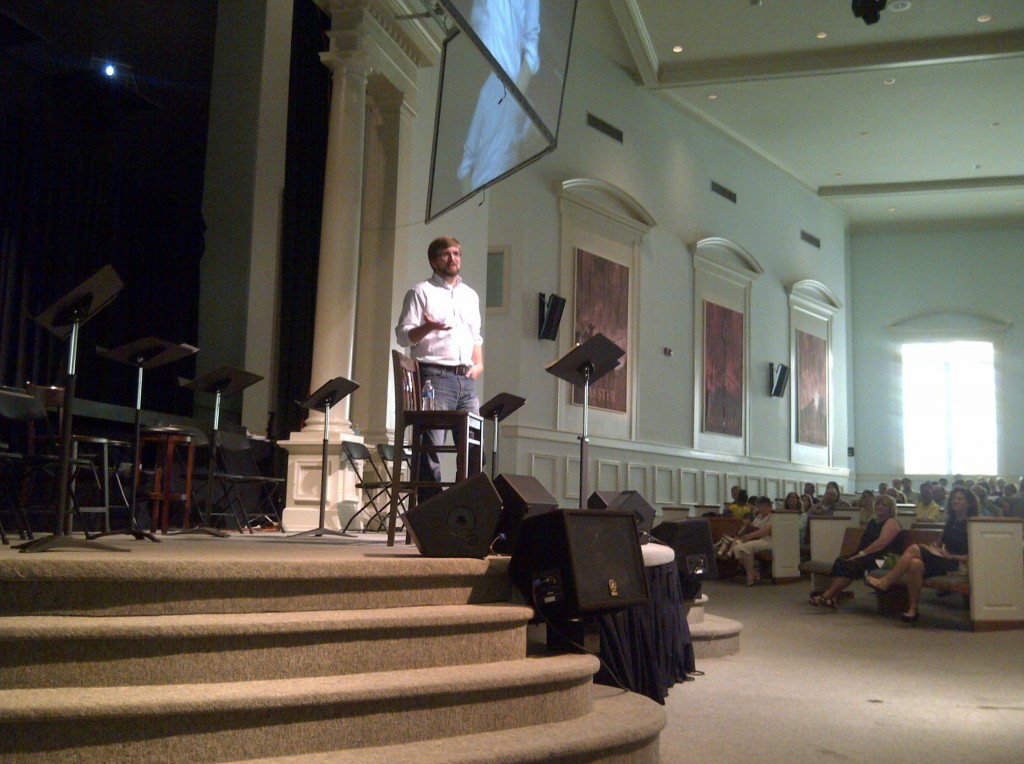There’s a simple formula that I use with clients in my counseling practice: Get you, be you, give you. This is the life process of maturing, and is a helpful mantra to live by. The problems occur when we try and do this formula in reverse, because one can’t give what one doesn’t have. We first must learn who we are before we can give.
This truth applies to marriages as well: We must first understand us (get me), then we can be us (be me), finally we can give (give us). The marriage is a combination of two uniquely individual people, and it is hard work to develop trust and intimacy. Relationships will not survive without trust and intimacy. Couples may stay together for the rest of their lives because of the commitment, but may never experience the redemption of trust and intimacy. With this in mind, here are three avenues that will grow trust and deepen intimacy in your relationship.
Date Night (Get Us)
Dates are one of the best ways that couples can engage to learn about themselves and each other. Anecdotally, one of the great regrets that I have about our newlywed years (first 3-4 years of marriage) is that we got sidetracked from dating one another. Our rationale (which was probably more of mine than hers) was that we were now spending so much more time together than we did when we were dating and engaged. This was both true and false.
It is true that the newlywed couple spends more time together, but often the quality of time spent is not as it was dating. It’s why I often hear spouses lament about the wish to return to the dating years. Having a regular and consistent date night can alleviate this dilemma. Date your wife. Ask her questions on the date to help you get to know her better. Questions like:
- What can I do to make you feel more loved; valued; joyful; secure; and/or confident in the future? What character trait would you like for me to develop?
- What attribute would you like for me to help you develop?
- What goal would you like us to work towards together?
- What would indicate to you that I really desire to grow?
- How have you felt the most/least loved by me?
Find A New Community (Be Us)
Before getting married, most couples have already been living in a town/city and will return there after the wedding. It presents some unique challenges to transition from a single to married lifestyle. New habits and routines will change the way some old relationships function. This can be a frustration for newlyweds. Pressure to maintain old relationships out of loyalty can stress the building of the marriage relationship.
Finding a new community brings several benefits. For one, it offers both husband and wife the ability to be apart of the community building experience. Both spouses get a voice that will help to shape who and where the couple will spend their time.
Secondly, new relationships will usually result in new personal information. Longstanding relationships have built-in assumptions. Because familiarity is so normal, new data about a person doesn’t happen as frequently. By initiating new relationships, couples will have chances to hear and learn more about each other.
Lastly, new communities bring new opportunities. Charlie Jones said “You are the same today as you’ll be in five years except for two things: the books you read and the people you meet.” Growth doesn’t happen by staying still. Read new books, and meet new people, together.
Find Service Opportunities (Give Us)
Finding and new community along with consistent date nights will give you and your husband a great groundwork from which to give. Giving will bring new levels of joy and intimacy to your relationship. You’ll rarely get to see the side of your spouse as you will when you serve together. I’m not entirely sure why this is true, but it is. There is something about giving that brings out both our darkness and brightness. Ultimately, we cannot truly love someone until we have seen both.
This can take many different directions. You could serve at your church in the nursery, at the local soup kitchen, or in your neighbors yard. It also looks like parenting. Serving now before you have kids will be a great exercise in training. Having kids is the ultimate act of service, and is not natural in us.
In year four of our marriage, my wife and I began relationships with other pre-married couples who were close to getting married. We built relationships with them so that they’d have someone a few steps down the road from them giving guidance.
These are just a few examples of what can lead to growth and intimacy in marriage. If you will commit to accomplishing each of these in the next year, you and your marriage will grow. It might not take the path of growth you thought it would, but it will grow.
(Article originally published at Start Marriage Right)

